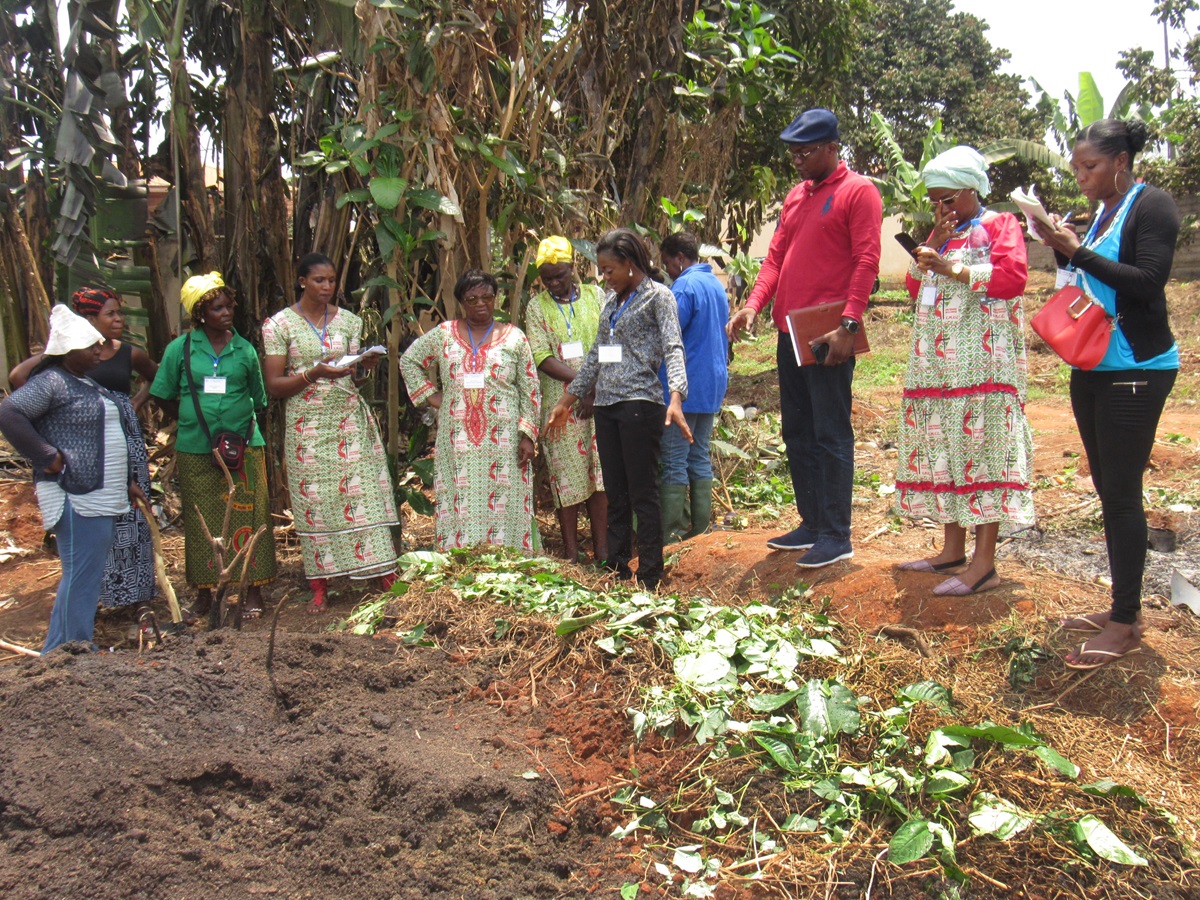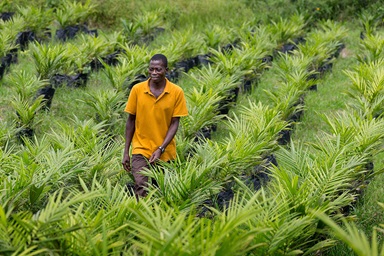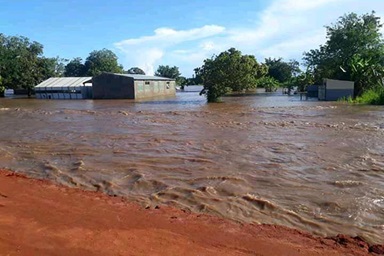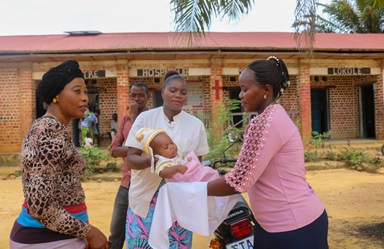The United Methodist Women Association in Cameroon has made helping internally displaced people in the country a priority.
According to United Nations estimates, there are more than 437,000 displaced people in Cameroon due to ongoing violence in the region. Most of those fleeing conflict areas are women and children who face “grave situations,” said Babar Baloch, a spokesperson for UNHCR, the U.N. Refugee Agency.
“Having fled with very little, they are arriving in impoverished host communities where food supplies are strained and with few facilities for health, education, water and sanitation,” he said.
During its three-day conference March 11-13 at Jordan Parish in Yaoundé, the women’s group focused on skills training that would empower members to generate income and teach internally displaced persons in their communities to become self-sufficient in their new locations.
More than 50 delegates attended the annual gathering, which also focused on leadership development and included a celebration marking the 150th anniversary of United Methodist Women.
The conference included sessions on effective leadership styles, menstrual hygiene and the making of reusable sanitary pads, jewelry making, health education, organic farming and best practices for women’s ministries.
Grace M. Musuka, a United Methodist Board of Global Ministries regional missionary for Cameroon, Congo, Zimbabwe and Malawi, led the training on menstrual hygiene and the biblical perspective of menstruation.
She educated participants on various taboos observed in some African societies about menses. In some countries, she said, girls must skip school during their cycles.
Musuka taught the women how to make reusable sanitary pads, which are made by hand for little or no cost and can last for years. This was the first time most of the women in the group had seen the demonstration and they were excited to share what they learned.
Beatrice Diffang Ntube said she was very impressed with the training. She has more than 10 internally displaced people living in her home, including a 29-year-old niece. Agnes Wase Etuka and her family needed a place to stay after fleeing Bole when their village was burned.
“I went to the bush for three weeks and my son got malaria,” said Etuka. “We could not continue living in the forest. I had to beg my aunty if I could come to her place. We really have no idea what will happen next and it’s terrifying. We are all suffering.”
Diffang said feeding 10 extra people has been difficult, especially in Douala, which is an expensive city. She promised to train them so that they can begin generating income for themselves.
Another entrepreneurial skill that the women learned during the conference was making bead jewelry.
“The idea of bead making plays a critical role in poverty alleviation, especially if on a large scale,” said Rose Eva Ndoumbe, vice president of United Methodist Women in Douala. “Empowering women has economic importance to the nation. If you empower a woman, you have empowered the nation, so is the objective of (The United Methodist Church).”
A month after the training, member Sara Ambadiang said she already had increased her income from the sale of earrings and other jewelry.
“I am now able to feed myself, my son and my junior sister who lives with me. I sell earrings and bangles to friends and after church services on Sundays. I have gained several orders from people who need special designs,” she said.
During another hands-on session at the conference, participants learned about organic farming. The majority of the women in attendance participate in small-scale farming to feed their families and earn extra money.
Okala Elogo, an agronomist, taught the women how to produce organic manure to improve crops and boost income.
Participant Ashu Synthia said the practical training will help her improve her living situation.
“I didn’t know that I can grow a garden in little containers since I don’t have enough land in the place I rent,” she said.
In addition to the skills training, the women learned about health issues affecting their communities, including hepatitis B and C.
Dr. Stella Nguefack, a member of the UMW Association in Cameroon, taught the women about the different types of hepatitis, transmission modes, prevention, various stages and treatment. The goal is for the women to help educate others about the disease in their own communities.
As the conference ended, Musuka thanked the women for their participation and urged them to continue to collaborate with each other when they return home. She also gave them some financial support to help them carry out income-generating activities.
Empowered, the women left excited to use and share their newfound knowledge with other women.
“Now that I have learned several skills, I’ll use them to better my life and to sustain a better living than before,” said UMW member Esuka Remi Monjo.
Already since the training, she said, she has managed to pay school fees for her children, who had dropped out of school.
“My life has fully transformed in all its aspects.”
Collette Ndobe is a communicator for the United Methodist Women Association Cameroon. Follow the group on Facebook at www.facebook.com/umwac.
To read more United Methodist news, subscribe to the free Daily or Weekly Digests.
Like what you're reading? Support the ministry of UM News! Your support ensures the latest denominational news, dynamic stories and informative articles will continue to connect our global community. Make a tax-deductible donation at ResourceUMC.org/GiveUMCom.




